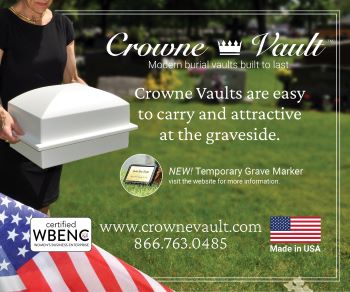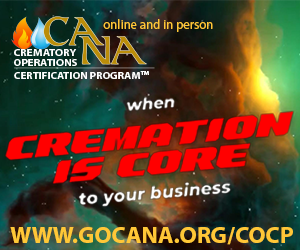Unclaimed bodies causing issues in Canadian provinces

What happens when deceased human remains remain unclaimed? In the Canadian provinces of Newfoundland and Labrador that situation is causing a problem. According to this article there is no easy solution on the human disposition of deceased human beings who are either unidentified or in a situation that the family does not claim them simply because finances for death care of the relatives is limited.
According to the article from the BBC Canada the morgue at the Health Sciences Center has had to hold the remains in portable freezer containers located outside the morgue building. At the time of the article it was mentioned that the containers held 28 bodies.
Here’s what the article says about the issue, “Sources say the situation is growing worse. The morgue has had bodies piled up two per stretcher and in the hallways. The cold storage units have never been this full.
And as prices rise across the board, Newfoundland and Labrador’s population grows older. About 5,500 people die here every year. As more people can’t afford to claim the remains, the province’s solution is the (portable) freezer units.”
Because of laws that don’t specifically give the authorities the ability to take care of the disposition of these remains, the situation continues to cause a problem. Here’s what the article says of that:
- Current laws don’t fully cover death by natural causes or lay out who has the authority to dispose of bodies.
- There are also no potter’s fields — or common graves — to bury unknown and unclaimed bodies.
- That leaves the bodies in limbo, since if N.L. Health Services were to unilaterally decide to cremate a body, it’s possible a relative might come forward after the fact to claim that’s not what the person wanted.

Tom Anderson
Funeral Director Daily
Funeral Director Daily take: This is a tough situation to deal with and I sympathize with those who have to come up with a solution. All government entities should be aware of this situation as I can see it happening in the near future in other places, including the United States.
In the USA there seems to be more and more issues with mental health and displaced persons than we have ever dealt with before. Many of these people may have become dis-engaged from their family over time and at the time of death relatives may not be able to be located to take care of the situation.
In addition, if you believe news reports we have approximately 10 million new people who have came to America in the past four years. Many of these people may have no relatives in the United States, and little financial support, at this time. What will happen to those in that cohort that have no relatives here and die in the United States? Disposition of remains, in that situation, will more than likely be a local government responsibility – a responsibility that will cost the local government and in reality, local taxpayers.
Finally, what about those whose family may not have a responsibility to cover funeral costs and do not claim the body simply because finances are very limited? I can envision this happening more often, especially if the default selection is for direct cremation by government authorities and then giving the next of kin the cremated remains. That position would serve the purpose of the families – cremation – with no out-of-pocket costs.
Final Thought: As I was writing this piece the famous death care quote of Sir William Gladstone came to mind. Gladstone served Great Britain in the 19th century as a four-term Prime Minister. His famous quote, which was on the wall of our funeral home was such:
“Show me the manner in which a nation cares for its dead, and I will measure with mathematical exactness the tender mercies of its people, their respect for the laws of the land and their loyalty to high ideals.”
The dignity of human life is important to me. . . and I think to all funeral directors. With murders, drug overdoses, and suicide deaths all up in America I wonder what we don’t see about the “Value of Life” in our society? And, is Gladstone right. . . in that how we handle death care reflects on those values, or as he puts it “mercies, respect . . and high ideals”?
More news from the world of Death Care:
- Post-mortem ecology: The rise of “Green Funerals”. Polytechnique Insights (France)
- Savvy Senior: How to tap underutilized burial benefits for veterans. The Transylvania Times (NC)
- Local cemetery considering pet burials. Davidson Local (NC)
- Lawsuit alleges Granite City man’s remains sat in Lambert Airport warehouse for 3 days, rapidly decomposing. Madison-St. Clair Record (IL)
- Demand for hands-on anatomy training growing in Charlotte. Queen City News (NC)
Enter your e-mail below to join the 3,502 others who receive Funeral Director Daily articles daily:
“A servant’s attitude guided by Christ leads to a significant life”




















